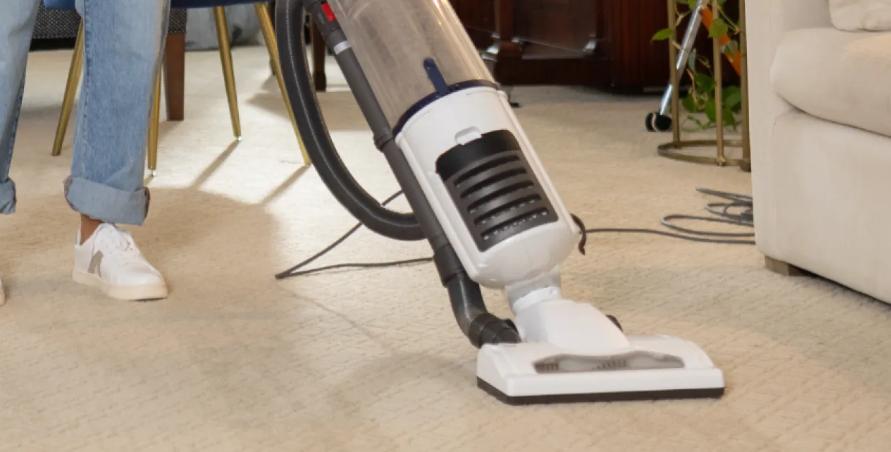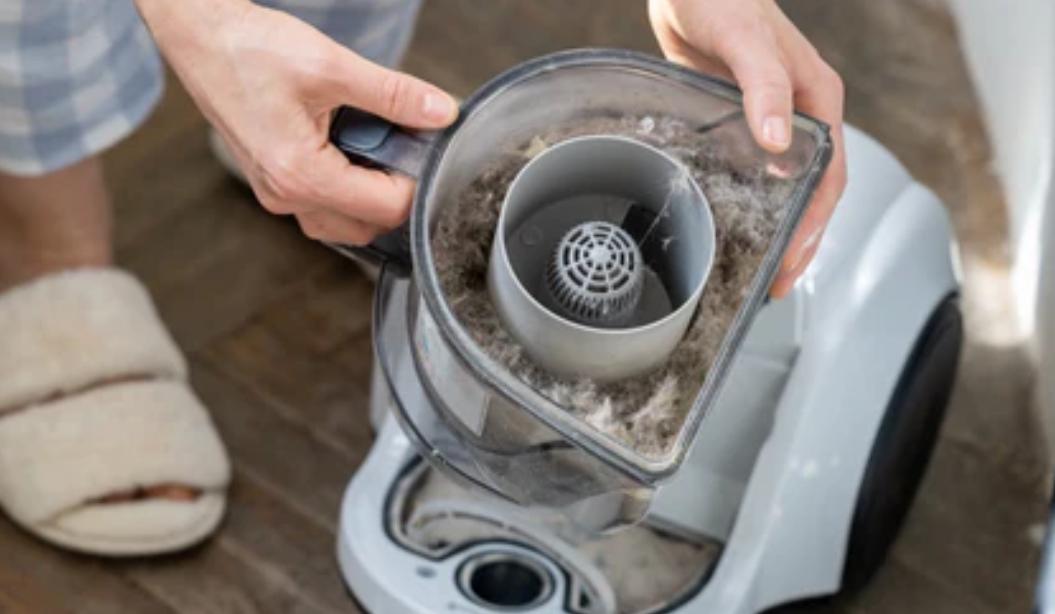
Ever noticed an unpleasant smell coming from your vacuum? Why does my vacuum smell is a common issue faced by many homeowners. This odor can be off-putting and even make cleaning less enjoyable. Fortunately, understanding the causes and solutions can help you tackle the problem effectively. In this blog, we’ll delve into why your vacuum might smell bad, identify common culprits like pet hair and mold, and provide actionable fixes. By maintaining your vacuum cleaner properly, you can keep your home fresh and extend the machine’s lifespan.

Common Causes of Vacuum Smells
Pet Hair and Dander
Pet hair and dander can be a significant source of unpleasant odors in your vacuum cleaner. As your vacuum sucks up pet fur, it can get trapped in the brush rolls, filters, and bags, creating a bad smell. The hair can also carry oils and dirt from your pet’s skin, contributing further to the odor.
Mold and Mildew Growth
If your vacuum cleaner has picked up any damp or wet debris, it becomes a breeding ground for mold and mildew. These microbes thrive in dark, moist environments and can produce a musty smell. Using the vacuum cleaner in this state spreads these spores around your home, which is unhealthy and unpleasant.
Clogged Filters and Bags
Over time, filters and bags in your vacuum can become clogged with dirt, dust, and debris. When these components are not emptied or replaced regularly, the accumulated waste begins to produce an odor. Filters are especially prone to holding onto these smells, and a dirty filter means your vacuum will blow smelly air back into your room.
Why Does My Vacuum Smell Like Burning?
Overheating Motor
A burning smell emanating from your vacuum often points to an overheating motor. Blockages and an overfilled dust bag can restrict airflow in the machine, causing it to work harder. This extra effort generates excess heat, which can give off a burning odor. It’s crucial to address this quickly to prevent permanent damage to your vacuum.
Friction and Worn Belts
Worn belts in your vacuum cleaner may also cause a burning smell. These belts connect the motor to the vacuum’s brush roll, and over time, they can wear out and create friction. The friction generates heat, which produces a burning odor. Regularly checking and replacing worn belts can keep your vacuum functioning smoothly.
How to Fix Vacuum Smells
Regular Cleaning and Maintenance
Taking time for regular cleaning and maintenance is essential for optimal vacuum performance. Empty your vacuum bag or canister frequently to prevent bad smells from building up. Wash or replace the vacuum filters as per the manufacturer’s instructions to maintain proper suction power. Moreover, clean brush rolls and other attachments regularly to remove trapped dirt, pet hair, and debris. This will ensure your vacuum remains efficient and free from odors.
Replacing Filters and Bags
Filters and bags play a crucial role in maintaining your vacuum’s efficiency and controlling odors. Over time, they can become clogged with dirt and debris, reducing suction power and causing unpleasant smells. Be sure to replace them according to the manufacturer’s guidelines to ensure optimal performance. Some vacuums feature HEPA filters, designed to trap fine particles, which need to be replaced regularly to maintain efficiency and prevent odors.
Deodorizing Techniques
If your vacuum still smells despite proper maintenance, you can try deodorizing techniques to freshen it up. Sprinkle baking soda on your carpets before vacuuming to help neutralize any lingering odors. Additionally, place a cotton ball with a few drops of essential oils inside the vacuum bag or canister. This not only helps neutralize smells but also adds a pleasant, refreshing scent to your vacuuming routine, making it more enjoyable.

How to Prevent Future Vacuum Odors
Proper Storage and Usage
Store your vacuum in a cool, dry place to prevent damage and ensure optimal performance. Avoid using it to pick up damp materials, as this can promote mold and mildew growth inside the vacuum. Always check and make sure the motor cooling vents are clear of obstructions to allow for proper airflow. Regular maintenance and safe storage will help extend the life of your vacuum and maintain its efficiency.
Regular Filter and Bag Replacements
Regularly check and replace your vacuum's filters and bags to ensure it operates efficiently and to prevent unpleasant odors from developing. Over time, filters and bags can accumulate dust, dirt, and debris, which may lead to musty or stale smells. Sticking to a consistent maintenance routine will not only extend the life of your vacuum but also help you stay ahead of any odor issues, keeping your home smelling fresh and clean.
Conclusion
Understanding the common causes of vacuum odors and knowing how to address them, such as why does my vacuum smell, can make a big difference in your cleaning experience. By following the tips and techniques outlined here, you can tackle any smell and prevent future issues. Regular maintenance, proper storage, and mindful vacuum usage will enhance your vacuum’s performance and contribute to a fresher home environment.
FAQ
Why does my vacuum smell like rotten eggs?
A rotten egg smell is often due to bacteria or mold buildup inside the vacuum. Empty the bag or canister, clean filters, and use a mild disinfectant.
Can a dirty vacuum filter cause a smell?
Yes, a dirty filter can trap odors from dust, dirt, and debris, and then release them back into your home as you vacuum. Regularly cleaning or replacing the filter can help.
How often should I clean my vacuum to prevent smells?
Clean your vacuum after every use by emptying the bag or canister and checking for clogs. Replace filters and bags following the manufacturer’s instructions, typically every 3-6 months.
Leave a Comment